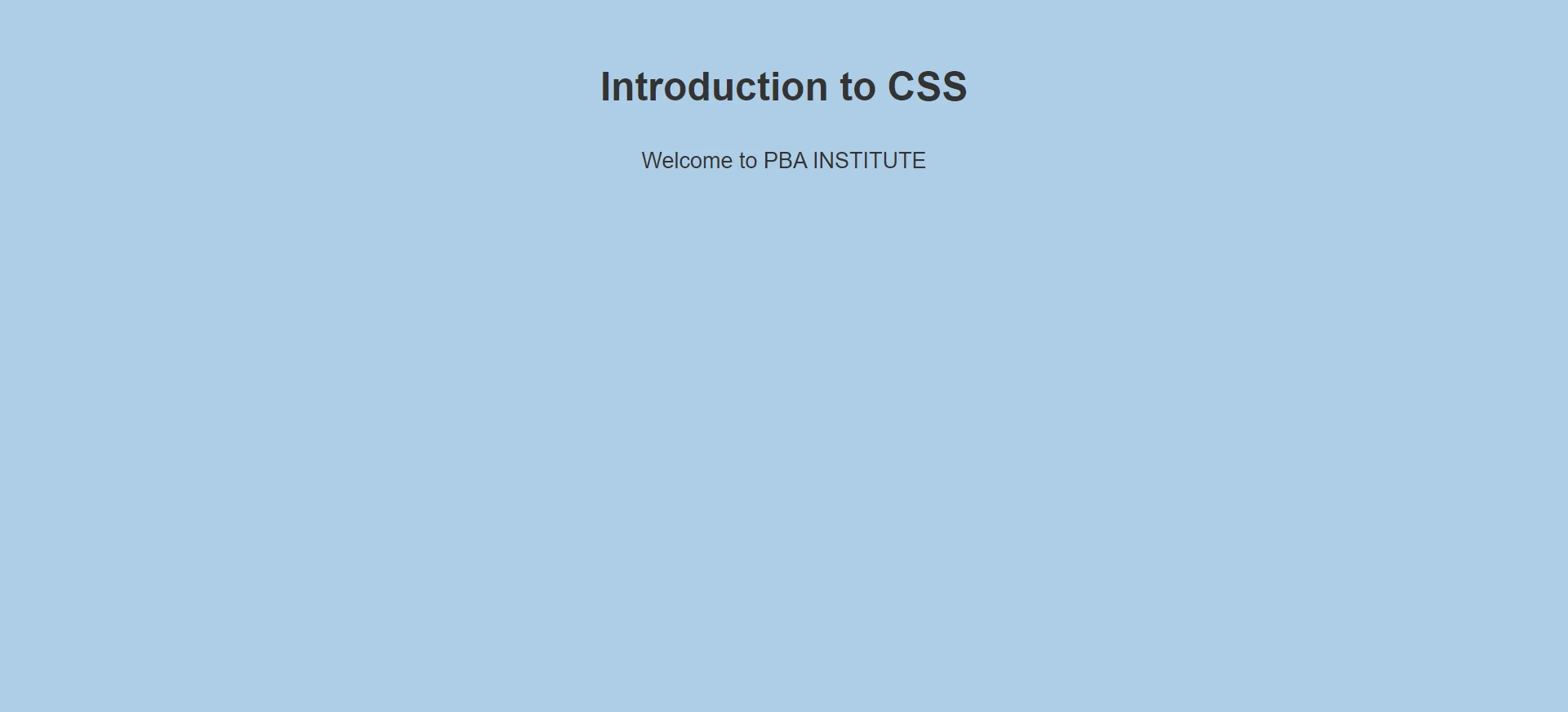
Introduction to CSS
- CSS, which stands for Cascading Style Sheets , is a styling language used to control the presentation and layout of web pages written in HTML and XML.
- It allows web developers to separate content from design, making it easier to maintain and update websites.
- CSS uses selectors to target HTML elements and define their appearance, including colors, fonts, spacing, and positioning.
- It supports various techniques like responsive design and media queries to ensure websites adapt to different devices and screen sizes. Overall, CSS is essential for creating visually appealing and user-friendly web experiences.
- Why CSS?
- Getting Started:
- Writing Your First CSS Document:
- Next Steps :
- Conclusion :
- Additional Tips :
Separation of Concerns: CSS separates the structure (HTML) from the presentation (styling), making it easier to manage and update each aspect independently. This separation enhances clarity and organization in web development.
Clear Syntax: CSS uses simple syntax with selectors (like element names, classes, and IDs) and property-value pairs (e.g., color: red;, font-size: 16px;). This straightforward structure makes it intuitive to apply styles to elements.
Efficiency: By applying CSS rules globally or selectively, developers can efficiently control the look and feel of a website. This reduces redundancy in code and speeds up development time.
Accessibility: CSS plays a crucial role in creating accessible web experiences. It allows developers to define appropriate contrast ratios, font sizes, and other accessibility features that enhance usability for all users, including those with disabilities.
Enhanced User Experience: Well-designed CSS contributes to a visually appealing and user-friendly interface. It can improve readability, navigation, and overall engagement with the website.
1. Download Sublime Text:
Go to the Sublime Text website and download the installer for Windows.
2. Run the Installer:
Once downloaded, run the installer executable (.exe file).
Follow the prompts in the installer wizard to complete the installation.
3. Launch Sublime Text:
After installation, you can launch Sublime Text from the Start menu or by double-clicking its shortcut.
Output:

In this example, body applies Arial font, 1.6 line height, light blue background (#AECEE7), and dark gray text (#333), with 20px padding. h1 is centered with 20px bottom margin. <p> elements have 18px font size and 10px bottom margin.
Practice, Practice, Practice : Encourage readers to experiment and
practice writing more Python programs.
Specific Areas of Interest : Briefly touch upon popular
specializations in HTML (web development, data science, etc.) and suggest
resources for further exploration.
Recap and Call to Action : Briefly summarize the key takeaways and emphasize the power and potential of CSS. Encourage readers to continue their CSS journey and explore its capabilities.
Code Examples: Include well-formatted and commented code examples
throughout the post to illustrate concepts visually.
Visuals: Consider adding screenshots or diagrams to enhance
readability and understanding.
Enthusiasm and Encouragement: Maintain a friendly and encouraging
tone throughout to motivate readers.
Proofread Carefully: Ensure the accuracy and clarity of your writing
for a smooth learning experience.